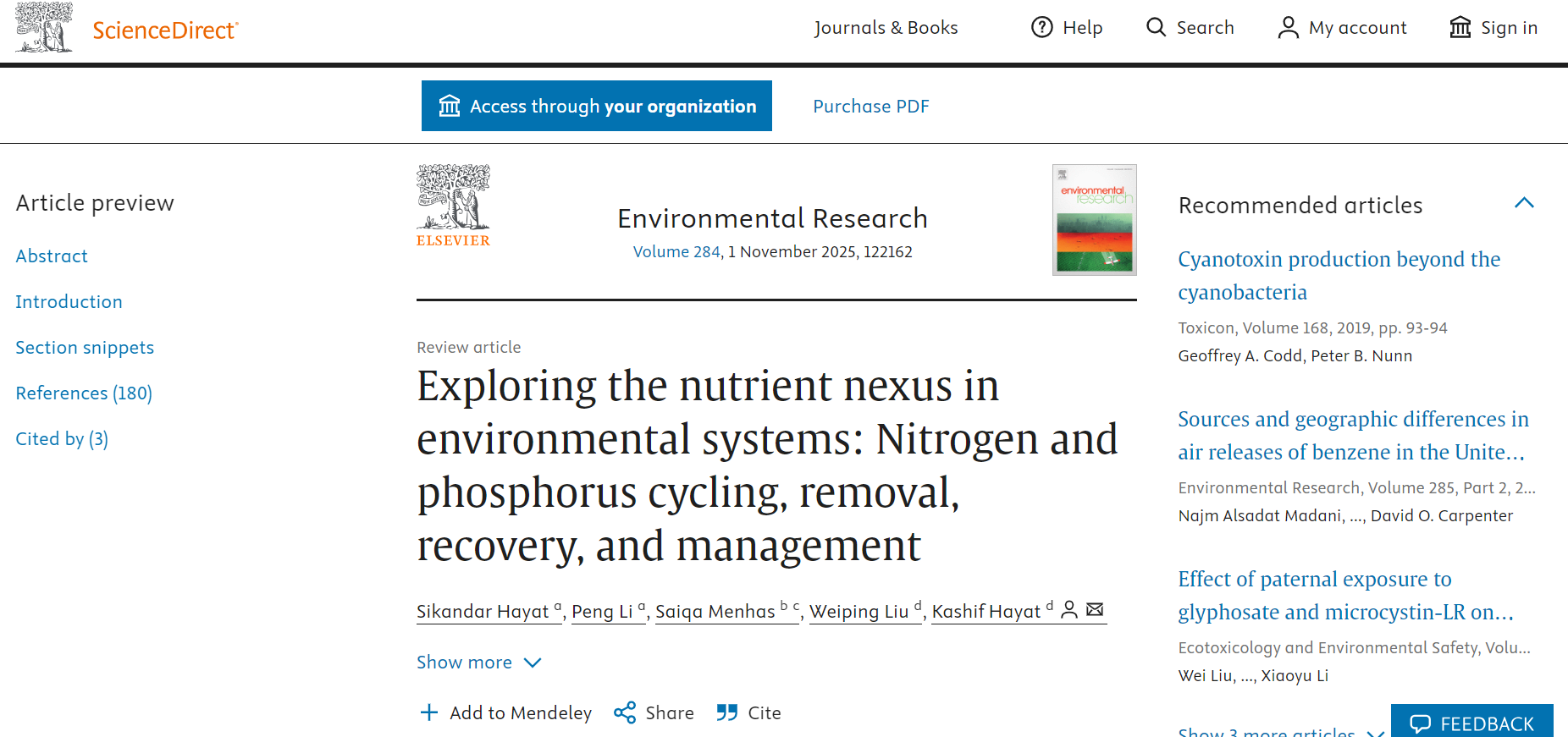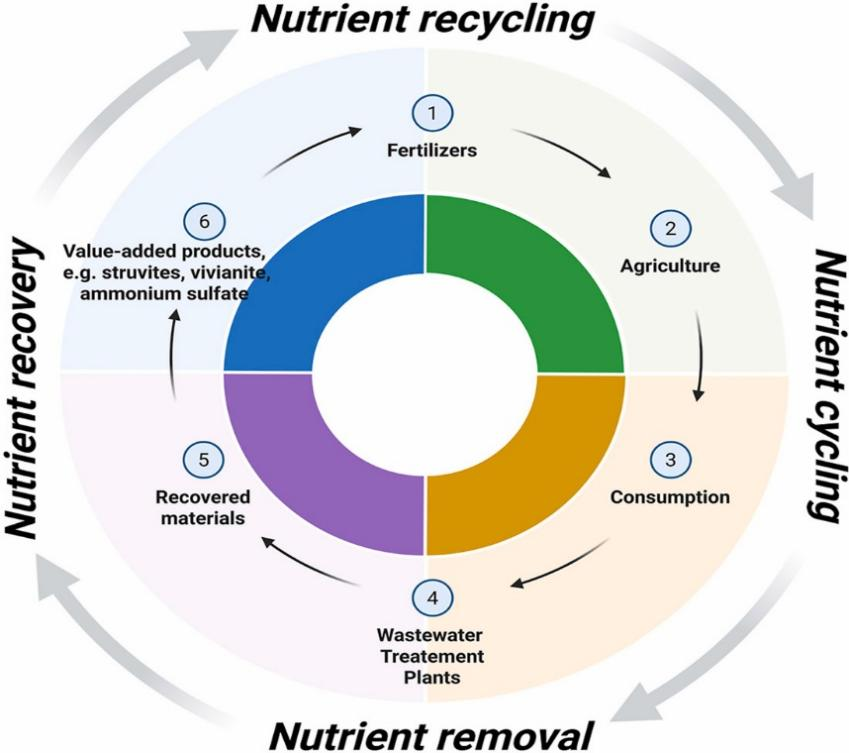近日,医学院药学系Sikandar Hayat博士和李鹏教授联合Zhejiang Shuren University Kashif Hayat博士以《Exploring the nutrient nexus in environmental systems: Nitrogen and phosphorus cycling, removal, recovery and management》为题在国际知名SCI期刊《Environmental Research》 (JCR Q1,中科院2区,IF:7.7)上发表了高质量论文。




Nitrogen (N) and phosphorus (P) are essential macronutrients that underpin critical biogeochemical processes, sustaining ecosystem functionality and productivity. However, anthropogenic activities, including agricultural intensification, industrial expansion, and urban development, have substantially disrupted their natural cycles. This disruption has led to the excessive accumulation of N and P across environmental matrices such as soil, water, and the atmosphere, resulting in significant ecological degradation. Consequences includeeutrophication,harmful algal blooms, hypoxia, and biodiversity loss inaquatic ecosystems. Additionally, surplus N and P contribute togreenhouse gas emissions,soil acidification, and decliningsoil fertility, thereby impairing agricultural sustainability. Human health is also at risk due to nitrate-contaminateddrinking waterand exposure to algal toxins, while emissions of ammonia (NH3),nitric oxide(NO), andnitrous oxide(N2O) further degrade air quality. The economic burdens associated with these impacts are substantial, affecting sectors such as agriculture, fisheries, and tourism. Addressing these challenges necessitates technological innovation in nutrient removal, recovery, and recycling, aligned with the principles of acircular economy. Established approaches include physical, chemical, and biological treatment methods. Emerging technologies, such as nanotechnology and synergistic applications of metal-organic frameworks (MOFs) with biochar, offer promising, sustainable alternatives, though they entail economic and operational considerations. Transitioning from nutrient removal to resource recovery and reuse encapsulates the circular economy's goal of closing nutrient loops, offering both environmental and economic co-benefits. Effective nutrient management necessitates interdisciplinary collaboration, drawing on expertise from ecology, agriculture, environmental engineering, economics, and policy. Such integrative approaches are essential for developing scalable and sustainable solutions to nutrient pollution and promoting long-term ecosystem restoration.
To access the article, please use the following link:
https://doi.org/10.1016/j.envres.2025.122162